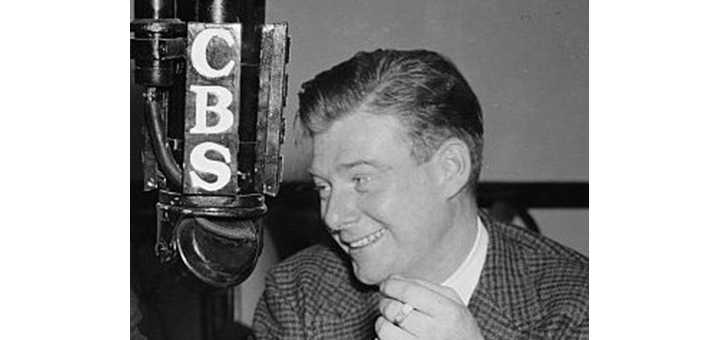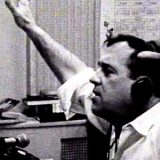Why No One Blocked This Guy’s Ads
Arthur Godfrey was arguably the greatest radio pitchman who ever sat behind a microphone.
Eschewing the declamatory style prevalent among radio pitchmen, Godfrey adopted what he called the “one guy” approach, delivering commercials, introducing songs, and casually dispensing small talk as if talking to one person rather than thousands.
That’s from Godfrey’s biography in The New York Times. But wait, there’s more.
…Godfrey frequently kidded his sponsors, but always “sold from the heart,” only hawking products he had actually tried and/or regularly used. No television viewer during the 1950s doubted that Godfrey really did love Lipton Tea and drank it every day. He delighted in tossing aside prepared scripts and telling his audience: “Aw, who wrote this stuff? Everybody knows Lipton’s is the best tea you can buy. So why get fancy about it? Getcha some Lipton’s, hot the pot with plain hot water for a few minutes, then put fresh hot water on the tea and let it just sit there.”
Godfrey perfected the art of seeming to speak intimately to each and every one of his viewers, to sound as if he was confiding in “you and you alone.” Despite all his irreverent kidding, then, advertisers loved him. Here was no snake oil salesman hawking an unneeded item, merchandise not worth its price. Here was a friend recommending the product. This personal style drove CBS efficiency experts crazy. Godfrey refused to simply read his advertising copy in the allocated 60 seconds. Instead he talked–for as long as he felt it necessary to convince his viewers of his message, frequently running over his allotted commercial time.
That from Godfrey’s write up on the Museum of Television website.
History is a Great Teacher
It’s been said that Arthur Godfrey taught radio (and television) how to sell. What were those lessons again?
- he sold from the heart;
- he sold products he believed in;
- he talked directly to his listener;
- he was a friend recommending a product.
Godfrey was every social media platform’s wet dream 70 years before there were social media platforms. And his salesmanship was available for sale.
Ignoring History is a Great Mistake
Marketing methods may have changed over the years, but people haven’t. They want their needs satisfied. This idea that people don’t want to be sold? It’s not only true, it’s not new. It was like that when I was in advertising, and it was like that centuries before me. This kerfuffle over ad blocking tells me one thing: the ads being blocked are not addressing the needs of their recipients no matter how carefully targeted they are supposed to be. In elevating the delivery method, the advertising industry has forgotten that an ad’s effectiveness derives from the human-to-human connection created by the its content, not from the algorithms that deliver it.
In an era where ad blocking was extremely simple–you turned off the radio—few people thought of blocking Godfrey. And if we, as podcasters, work with enlightened marketers to adopt his methods, few people will think of blocking our podcast ads, either.









